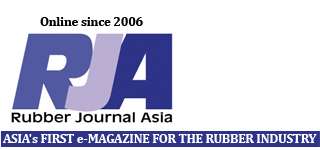 Benecke-Kaliko has officially opened a new plant in Changzhou, China to manufacture the environment-friendly, low-emission and non-allergenic automotive interior materials Acella Eco und Acella Eco green.
Benecke-Kaliko has officially opened a new plant in Changzhou, China to manufacture the environment-friendly, low-emission and non-allergenic automotive interior materials Acella Eco und Acella Eco green.
Series production has been running since the end of 2015 with an approx. 100-strong workforce; 50 more jobs are to be added over the next few months. Benecke-Kaliko has invested 40 million euros in the first phase of the expansion – the largest investment in its history. “This underlines the great importance of the Chinese market for us, as well as the excellent relations that Benecke-Kaliko has with its partners in the local automotive industry,” emphasizes Dr. Dirk Leiss, Benecke-Kaliko’s CEO.
“In China, environmental protection has become a more significant strategic issue for improvement of the people’s living standard and quality of life”, said Dr. Ralf Cramer, Member of the Executive Board of Continental AG, President and CEO of Continental China. “Benecke Changshun Eco Trim (Changzhou) Co.,Ltd. fully demonstrated Continental’s strategy ‘in the market for the market’. Benecke-Kaliko, as special materials expert, will consciously combine eco-friendly technological strengths with local expertise and development, as well as sustainable production to provide optimized solutions and service for local customers and business partners.”
The new plant has doubled the company’s capacity for Acella in China and is now well-positioned to respond to the high level of demand from the Chinese automotive industry for its surface materials.
The new plant operated by Benecke Changshun ECO Trim, a joint venture between Benecke-Kaliko and its Chinese partner Jiangsu Changshun Group Co., Ltd, will produce around 10 million m2 of the surface material Acella® Eco annually. Water-based paints will be used exclusively at this facility, which reduce the emissions of the material to a minimum and guarantee environment-friendly production. Acella® Eco is also suitable for long-term, direct contact with drivers and passenger skin. It is mainly used for vehicle seats and arm rests. A second expansion phase for the new facility is planned if demand continues to rise.
A high degree of automation ensures consistently reproducible production standards. “Our second plant in China is making a significant contribution to our continued successful global market penetration and thus, offering crucial benefits to our customers,” declares Leiss. “From our Changzhou base, we can reach all of our automotive customers’ plants quickly and easily. We have also been collaborating for some time with scientists from the local university,” he says, explaining the reasons behind the choice of location.
